Where To Put Wall Sconces In Bedroom
So you've moved into a new place or have finally saved up enough to decorate that neglected living room—yay you! When you start to plan out the design of your space, you'll surely think about the style you want to achieve (is it more preppy and traditional or coastal and casual?), colors you want to incorporate (with paint, pillows, rugs, and other accents), and of course the furniture pieces on your to-buy list. But in all this planning and Pinning, there is one design element you might be unknowingly neglecting: texture.
You've probably heard the phrase adding texture to a space, but do you know how to put it into action? It's a favorite buzzword among designers—and one of the keys to creating a space that looks "finished"—so we went straight to the source for the best tips and ideas to successfully incorporate texture to your home.
What Does Adding Texture Actually Mean?
To put it simply, adding texture means creating visual interest, explains Los Angeles-based designer Liz Foster. And you can do that in a number of ways, but the key is diversity among the objects and finishings in your space.
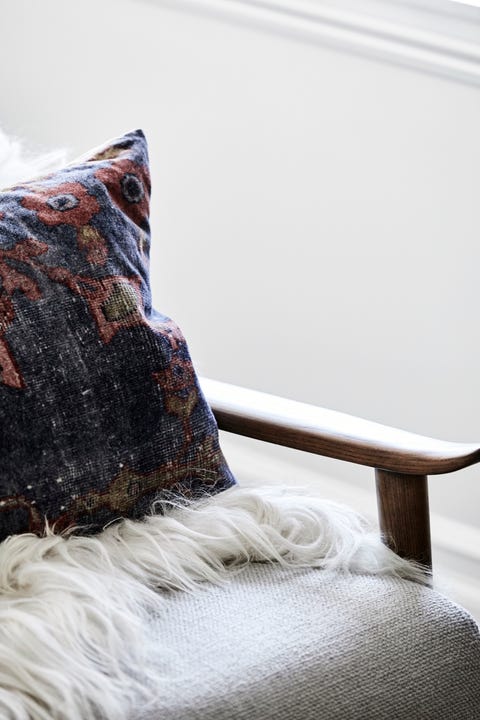
Jenna Peffley
"When we talk about adding texture, we are referring to the layering of various textiles, materials, colors, and metals in a space," say Christina Samatas and Renee DiSanto, the Chicago duo behind Park & Oak Interior Design. Think: adding a wool blanket to your leather armchair, a coffee table that mixes brass and unfinished wood, a pink velvet sofa against a pink wallpapered wall.
Liz points out that in addition to being something you can touch and feel, texture can also refer simply to a visual display of objects. "For instance, a collection of varying types of pottery displayed on a shelf will give your space more 'texture' or 'visual interest' than a single framed photo displayed in the same spot," she says.
Lots of Layers Means Lots of Pieces
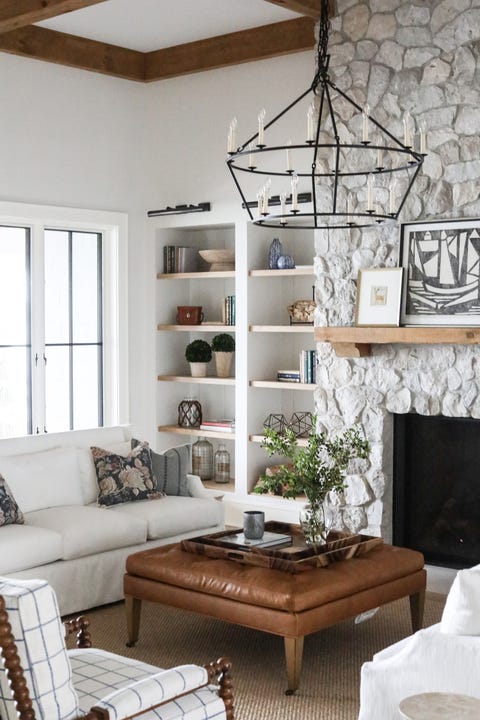
Renee DiSanto
Here's one secret: Nailing the textured, layered look usually takes time—that is unless you're a designer with a storage unit full of staging decor. That's why sometimes when you first move into a new home, even filling it up with all the necessities leaves it feeling like it's missing something.
"I think forgetting to layer in texture can lead to a space feeling flat, or soulless," says Nashville designer Lori Paranjape. Christina and Renee second that idea: "Texture is really the secret to making a space look and feel finished and lived in. The more you can mix opposing elements the better."
Over time, you can buy pieces that really speak to you and add them in to create a new layer and further fill out a space. And doing this gradually is almost always better than trying to buy every single element at once (again, those designers have been stockpiling or eyeing these perfectly placed goods for months if not years), because you shouldn't buy something just because it checks a box if you don't love it.
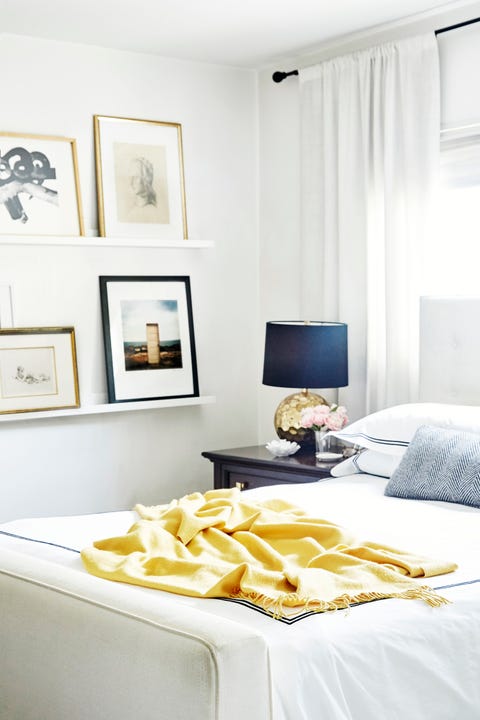
Jenna Peffley
"I encourage incorporating texture for the same reason I discourage clients from buying items in 'sets,'" Liz says. "Like when the coffee table and side tables are a perfect match. A room feels flat and lifeless if all the furniture is the same wood with the same linen upholstery, drapes, and pillows." Again, diversity is key.
Let's Get Layering
So as you purchase new layers for your home (or simply rearrange what's already there), here are some ideas and guidelines to keep in mind to ensure you're incorporating texture like a pro.
Texture can be monochromatic:
"If a space I'm designing is white, I never try to stay with the same white tone. I use an entire spectrum of whites, beige, taupe, ivory, even black. It's the build-up of sameness that keeps the space from feeling flat or cold." - Lori Paranjape
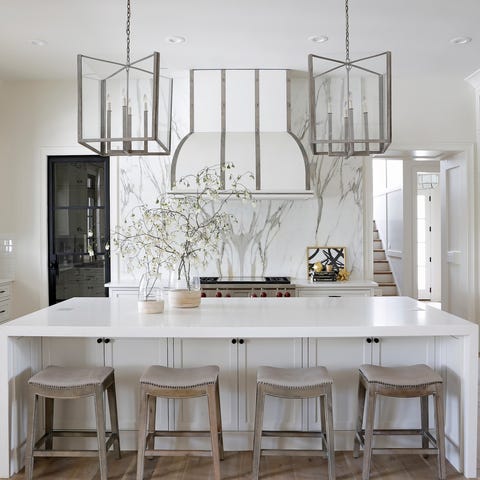
Paige Rumore Photography
Keep track of what's already there:
"When designing a room, I'm constantly reminding myself of what materials are being used where to ensure there's enough contrast. I'm making sure I'm not pulling a brass lamp to go on a brass side table or an oak mirror to go over an oak console." - Liz Foster
Don't limit your texture to accent pieces:
Sometimes creating the right mix of materials and textures is a little more involved than adding a new throw pillow. Don't forget about your walls (paint and wallpaper are the ultimate backdrop for all your other layers), light sources (a treasure trove of material options), and flooring (try layering rugs).
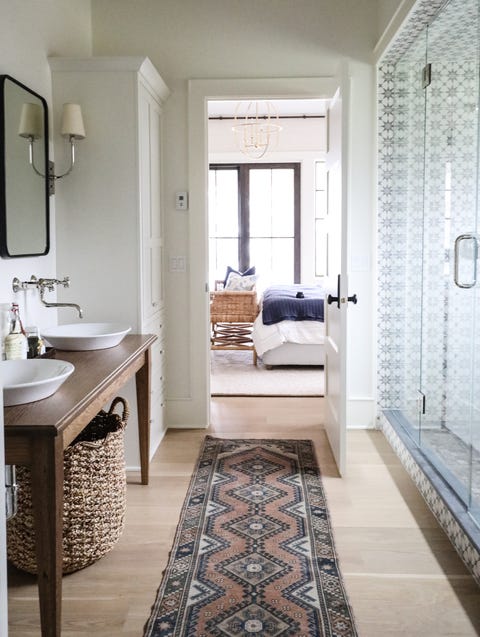
Renee DiSanto
Don't be afraid of lots of mixed materials:
"If you mix a leather sofa with a glass coffee table, raw oak side table, chrome-framed armchair with wool upholstery, and so on, your space will look and feel much more interesting and unexpected now that you've incorporated a wide variety of textures." - Liz
Adding bit by bit doesn't have to break the bank:
"A fur pillow on a linen sofa or layering a vintage wool runner over a large seagrass area rug are easy ways to add texture without much expense." - Liz
Follow House Beautiful on Instagram.
Maggie Burch Contributing Writer Maggie writes about interiors, real estate, and architecture for House Beautiful.
This content is created and maintained by a third party, and imported onto this page to help users provide their email addresses. You may be able to find more information about this and similar content at piano.io
Where To Put Wall Sconces In Bedroom
Source: https://www.housebeautiful.com/design-inspiration/a25654977/texture-design-style-tips/

0 komentar:
Posting Komentar